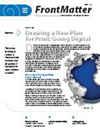Advancing Evidence-Based Decision-Making in Large Landscape Conservation Through the Social Sciences: A Research Agenda for the Yellowstone to Yukon Region
IF 1.8
4区 环境科学与生态学
Q4 ENVIRONMENTAL SCIENCES
引用次数: 0
Abstract
As the world's mountains are significant hotspots of biodiversity and home to hundreds of millions of people, they are ideal locations in which to investigate and develop the conservation social sciences in a systematic way to help inform conservation decision-making and policy. Here, we discuss the development of a social science research agenda for the Yellowstone to Yukon Conservation Initiative, a transboundary environmental organization working in Canada and the United States. We suggest that this process is useful for others to undertake in similar conservation landscapes and mountain systems as we strive to better understand how people live in, play in, benefit from, and visit the globe's mountain regions. We outline an agenda for collaborative social science research in the Yellowstone to Yukon region related to 4 themes and offer 12 priority questions as launching points for interested researchers to explore in more detail. Through a review of relevant literature on the 4 themes, we identify research gaps that, if addressed, could usefully inform decision-making across the Yellowstone to Yukon region. Finally, we call on the research community to focus its curiosity and resources on answering these questions and encourage funders and institutions to support them in doing so.通过社会科学推进基于证据的大型景观保护决策:黄石到育空地区的研究议程
由于世界上的山区是生物多样性的重要热点和数亿人的家园,它们是研究和发展保护社会科学的理想场所,以系统的方式帮助为保护决策和政策提供信息。在这里,我们讨论了黄石到育空保护倡议的社会科学研究议程的发展,这是一个在加拿大和美国工作的跨境环境组织。我们建议,在我们努力更好地了解人们如何在全球山区生活、玩耍、受益和访问的过程中,这一过程对其他人在类似的保护景观和山区系统中进行有益的借鉴。我们概述了黄石到育空地区合作社会科学研究的议程,涉及4个主题,并提供了12个优先问题作为感兴趣的研究人员更详细探索的起点。通过对这四个主题的相关文献的回顾,我们确定了研究空白,如果解决这些空白,可以有效地为黄石到育空地区的决策提供信息。最后,我们呼吁研究界将其好奇心和资源集中在回答这些问题上,并鼓励资助者和机构支持他们这样做。
本文章由计算机程序翻译,如有差异,请以英文原文为准。
求助全文
约1分钟内获得全文
求助全文
来源期刊
CiteScore
3.10
自引率
18.80%
发文量
36
审稿时长
4.5 months
期刊介绍:
MRD features three peer-reviewed sections: MountainDevelopment, which contains “Transformation Knowledge,” MountainResearch, which contains “Systems Knowledge,” and MountainAgenda, which contains “Target Knowledge.” In addition, the MountainPlatform section offers International Mountain Society members an opportunity to convey information about their mountain initiatives and priorities; and the MountainMedia section presents reviews of recent publications on mountains and mountain development.
Key research and development fields:
-Society and culture-
Policy, politics, and institutions-
Economy-
Bio- and geophysical environment-
Ecosystems and cycles-
Environmental risks-
Resource and land use-
Energy, infrastructure, and services-
Methods and theories-
Regions

 求助内容:
求助内容: 应助结果提醒方式:
应助结果提醒方式:


